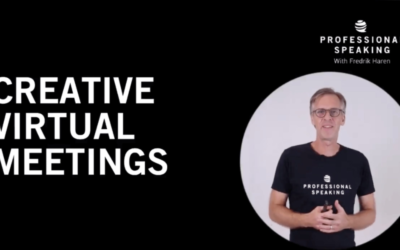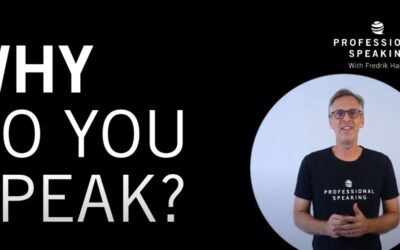
(Dhaka, Bangladesh)
“That was an amazing speech! May I ask you: was it rehearsed or are you just saying what comes into your mind?”
That was the question that a young creative Bangladeshi walked up and asked me after I had just finished delivering the closing keynote at the largest branding conference in Bangladesh. In the audience had been a few hundred of the most creative people in Bangladesh.
Instead of answering the question, I smiled and ask him: “What do you think?
Had I replied to his question the answer would have been: “I have given this (or a version of this) speech hundreds of times over the last few years and I prepared this specific speech many days ago and worked on it all the way until the very minute I walked up on stage (memorising the stories I was going to tell, in which order, and what the over all message I wanted to communicate to the audience was, and so on.)
In other words the answer to his question would have been: “It’s rehearsed.
To my joy (and surprise) he instead replied: “I think you were just making it up on the stage.”
Why did I like that he said that?
“Winging it” is never a good strategy and especially not when giving a speech, so if the audience THINKS that I am just up on stage saying what pops into my head you would be forgiven to think that that would be something bad – but in this case it was not.
Because the young man had obviously loved the speech. His comment about saying what comes into my mind was meant as a compliment. He actually thought that I was speaking my message from the heart and in the moment.
As speakers we should aim for that. It means that the audience thinks (and feels) that they are getting something unique that was created right there and then – in the moment – for them.
I do not know if it is true, but it is said that when a baseball player swings at a baseball there is no way that he (or she) can actually react fast enough to where the ball is coming at him. Instead the batter has to decide where to hit before the ball is even close to the bat . And the reason good batters hit the ball so often is that they have the experience to decide where the ball will be coming based on the movements of the pitcher etc.
Regardless if that is true or not, the message with this story for speakers is that we need to spend a lot of time preparing for our speech, but when we go up on stage to speak we need to leave the preparation mode and go into “presentation mode” and just go out there and “swing it”.
That means stop living in the past trying to remember what you are going to say and how.
Instead we should be in the present.
Speak in the present.
Present in the present.




